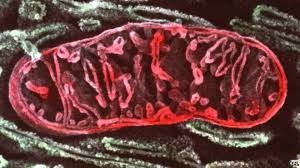Chiklita ad
Monday, 7 August 2017
New genetic analysis for diagnosis of mitochondrial disease
Mitochondria are the power plants of cells, breaking down molecules from sugars, fats and proteins to generate energy for the human body.
Mitochondrial disease is an inherited chronic illness that can be present at birth or develop later in life. It causes debilitating physical, developmental, and cognitive disabilities.
Common symptoms are loss of muscle coordination, muscle weakness, pain, seizures, hearing loss, learning disabilities and organs failure.
Genetic analysis could improve diagnostic rates for children with fatal mitochondrial diseases. Mitochondrial diseases can affect babies, older children and adults.
Scientists have shown a new approach to UK baby Charlie Gard who suffered from mitochondrial DNA depletion syndrome. New diagnostic methods like whole exome sequencing can quickly sequence a person's entire genetic blueprint.
Scientists have discovered a new cause of mitochondrial disease, which affects the ability of the mitochondria to operate as the body's power plant and converting food into energy.
Researchers found mutations in a gene called MRPS34, in six patients with the most common form of childhood mitochondrial disease. They used quantitative proteomics which involves sampling all the proteins in a cell at once to identify any problems with the cellular machinery, this reveals what is going on in the cells.
The MRPS34 gene is one of 80 components of the mitochondrial protein synthesis machinery, called 'mitoribosome'. Scientists carried out the quantitative proteomics technique, examining cellular proteins in the patient's cultured skin cells, against healthy skin cells.
They discovered that the cells could not make the key proteins encoded by mitochondrial DNA. It also showed that two of the five major components of the power plants are falling apart, causing the machinery that fuels the body's energy to break down.
MRPS34 was the 25th mitochondrial disease gene discovered by scientists and one of the first in the world to show that quantitative proteomics could play a key role in improving diagnostic rates.
This discovery can put an end to wrong diagnosis of children suspected of mitochondrial and other inherited diseases. Early diagnosis improves the chance for early intervention. It can also provide the opportunity to enrol patients with mitochondrial diseases into clinical trials to test many new promising therapies on them.
haleplushearty.blogspot.com
Subscribe to:
Post Comments (Atom)

No comments:
Post a Comment